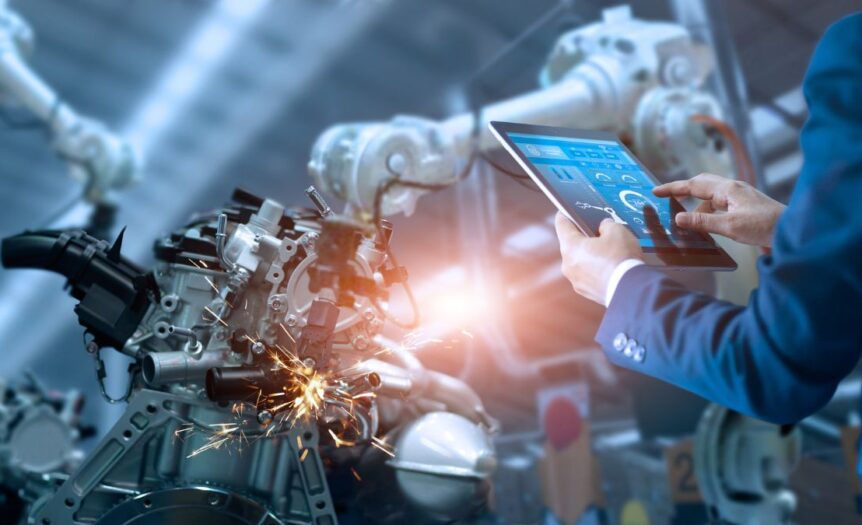The manufacturing industry is constantly evolving, with advancements in technology and innovative processes shaping the future of production. As businesses look to stay competitive and increase efficiency, they need to be aware of the latest trends. We examine five key developments that are transforming the professional landscape today. Here are the top emerging trends in the manufacturing industry to know.
Adoption of Robotics and Automation
Robotics and automation have become integral components of the modern manufacturing process. As this technology continues to develop rapidly, a growing number of companies are investing in state-of-the-art automated machines to perform tasks with enhanced speed and precision. This shift toward automation benefits manufacturers in several ways, including increased productivity, reduced costs, and improved safety. Additionally, you can program robots to perform repetitive tasks, allowing human employees to focus on higher-value activities that require critical thinking and problem-solving skills.
The Use of Programmable Logic Controllers
Programmable Logic Controllers (PLCs) are computer-based systems that facilitate automation by controlling machinery in the manufacturing process. PLCs are essential manufacturing tools designed to manage complex production lines and offer a high degree of flexibility, efficiency, and reliability. You can readily customize PLCs and reprogram them to adapt to changes in the production environment or to accommodate new product designs. This ability to quickly modify production processes without major overhauls has made PLCs indispensable in the contemporary manufacturing industry.
Digital Twins for Production Planning
Digital twins are virtual simulations of physical assets or systems created using data from sensors, computer models, and machine learning algorithms. In essence, they enable companies to better plan and optimize production processes. By creating a digital twin of a physical system, manufacturers can predict potential failures, optimize machine performance, and reduce downtime. Digital twins also allow for real-time monitoring of production environments, providing manufacturers with valuable insights for continuous improvement and refined decision-making processes.
Integration of Internet of Things (IoT) Technologies
Another vital trend to know about in the manufacturing industry is the IoT. IoT technologies revolutionize production facilities by connecting machines, devices, and systems within a single networked ecosystem. By gathering data from these interconnected entities in real time, IoT enables manufacturers to monitor operations, identify inefficiencies, and optimize processes. IoT technologies also facilitate predictive maintenance, helping companies identify potential equipment failures and schedule maintenance before they lead to costly downtime.
The Importance of Sustainability and Circular Economy
Additionally, the manufacturing industry is increasingly focused on incorporating sustainable practices and circular economy principles into its operations. Companies are looking to minimize waste, reduce energy consumption, and use resources more efficiently to create eco-friendly products and processes. New technologies, such as additive manufacturing (3D printing) and innovative recycling techniques, are enabling this shift toward a circular economy. This not only helps minimize environmental impacts but can also lead to cost savings and brand differentiation.
As the manufacturing industry adapts to these emerging trends, businesses need to stay informed and make proactive efforts to embrace new technologies and processes. By doing so, they can remain competitive, increase efficiency, and pave the way for a more sustainable future.










 Deering Estate
Deering Estate
 Massage Envy South Miami
Massage Envy South Miami
 Calla Blow Dry
Calla Blow Dry
 My Derma Clinic
My Derma Clinic
 Sushi Maki
Sushi Maki
 Sports Grill
Sports Grill
 The Healthy Kitchen
The Healthy Kitchen
 Golden Rule Seafood
Golden Rule Seafood
 Malanga Cuban Café
Malanga Cuban Café

 Kathleen Ballard
Kathleen Ballard
 Panter, Panter & Sampedro
Panter, Panter & Sampedro
 Vintage Liquors
Vintage Liquors
 The Dog from Ipanema
The Dog from Ipanema
 Rubinstein Family Chiropractic
Rubinstein Family Chiropractic
 Your Pet’s Best
Your Pet’s Best
 Indigo Republic
Indigo Republic




 ATR Luxury Homes
ATR Luxury Homes


 2112 Design Studio
2112 Design Studio
 Hamilton Fox & Company
Hamilton Fox & Company
 Creative Design Services
Creative Design Services
 Best Pest Professionals
Best Pest Professionals
 HD Tree Services
HD Tree Services
 Trinity Air Conditioning Company
Trinity Air Conditioning Company
 Cisca Construction & Development
Cisca Construction & Development
 Mosquito Joe
Mosquito Joe
 Cutler Bay Solar Solutions
Cutler Bay Solar Solutions


 Miami Royal Ballet & Dance
Miami Royal Ballet & Dance
 Christopher Columbus
Christopher Columbus
 Pineview Preschools
Pineview Preschools
 Westminster
Westminster
 Carrollton
Carrollton
 Lil’ Jungle
Lil’ Jungle
 Frost Science Museum
Frost Science Museum
 Palmer Trinity School
Palmer Trinity School
 South Florida Music
South Florida Music
 Pinecrest Orthodontics
Pinecrest Orthodontics
 Dr. Bob Pediatric Dentist
Dr. Bob Pediatric Dentist
 d.pediatrics
d.pediatrics
 South Miami Women’s Health
South Miami Women’s Health

 The Spot Barbershop
The Spot Barbershop
 My Derma Clinic
My Derma Clinic




 Miami Dance Project
Miami Dance Project

 Rubinstein Family Chiropractic
Rubinstein Family Chiropractic
 Indigo Republic
Indigo Republic

 Safes Universe
Safes Universe
 Vintage Liquors
Vintage Liquors
 Evenings Delight
Evenings Delight





 Atchana’s Homegrown Thai
Atchana’s Homegrown Thai
 Baptist Health South Florida
Baptist Health South Florida

 Laser Eye Center of Miami
Laser Eye Center of Miami
 Visiting Angels
Visiting Angels
 OpusCare of South Florida
OpusCare of South Florida

 Your Pet’s Best
Your Pet’s Best





 HD Tree Services
HD Tree Services
 Hamilton Fox & Company
Hamilton Fox & Company


 Creative Design Services
Creative Design Services